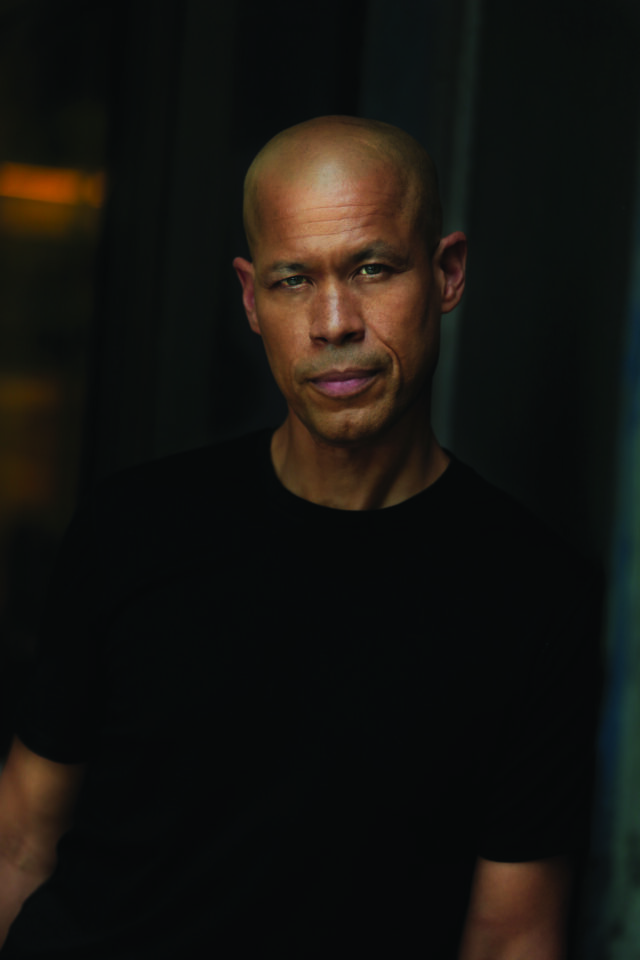
Interview and Photography by Cathrine White
CATHRINE WHITE: What has changed for you personally since the murder of George Floyd last summer?
VLADIMIR DUTHIERS: The night Dr. Martin Luther King Jr. was killed, Senator Robert F. Kennedy delivered a speech in Indianapolis and he implored us to “dedicate ourselves to what the Greeks wrote so many years ago: to tame the savageness of man and make gentle the life of this world.” Dr. King certainly did not set out to be assassinated and George Floyd could not have known that the events of that day in May would lead to his death at the hands of one who was obligated to protect it. But his death, like Dr. King’s, set off a cascading series of events that reverberated around the world. From Minneapolis to Oslo, Denmark to Hong Kong to Lagos, Nigeria, millions took to the streets to protest racial injustice and police brutality—to try and “make gentle the life of this world.” I have also reflected on 17-year-old Darnella Frazier’s actions that day. The police statement of George Floyd’s death was simply titled “Man Dies After Medical Incident During Police Interaction.” It didn’t mention any use of force, did not mention Derek Chauvin’s name, and just stated that he “physically resisted officers” and “appeared to be suffering from medical distress” after being handcuffed.
We only know what really happened because 17-year-old Darnella Frazier turned on her camera and filmed the entire incident and then shared the horror, the trauma, George’s pleas of mercy and cries for his mother—with the world. She was just a normal teenager with a job at the mall. But like Nellie Bly and Ida B. Wells and countless others before her, her documenting this crime—her journalism—changed things in ways that we have yet to even imagine. But when she was awarded a 2021 Pulitzer Prize Special Citation, the board wrote that she was being honored “for courageously recording the murder of George Floyd…and highlighting the crucial role of citizens in journalists’ quest for truth and justice.”
Rosa Parks did not set out to change the world. She just wanted to get home after a long day on her feet. But in my mind, whether they knew it or not, their actions contributed to making gentle the life of this world. And I think about that exhortation every day and try to live up to it.
CW: You quoted words attributed to St. Augustine—“The key to immortality is first living a life worth remembering”— in your commencement address at your alma mater, the University of Rhode Island, in 2017. Looking back at that, how has that contributed to the way you lead your life today?
VD: I try to be a conduit for the stories and the truths of others. I have come to believe that immortality comes from changing other people’s lives for the better. I hope in sharing their stories, I can honor the lives and memories of the downtrodden, the persecuted and the oppressed, memorialize those who have lost or sacrificed their lives, and honor the loved ones they leave behind.
CW: A book you love?
VD: Viktor Frankl’s Man’s Search for Meaning. I try to reread it once a year. I am reminded of this quote nearly every day: “Don’t aim at success. The more you aim at it and make it a target, the more you are going to miss it. For success, like happiness, cannot be pursued; it must ensue, and it only does so as the unintended side effect of one’s personal dedication to a cause greater than oneself or as the byproduct of one’s surrender to a person other than oneself.”
CW: What inspires you?
VD: People. It might sound silly but it’s true. Every day, I marvel at what people can do. No matter where we are from, no matter our race, ethnicity, religion or creed—we teach, we empathize, we share, we learn, we sing and play music, we laugh and cry and make others laugh and cry, we sometimes hurt and so some do evil…but inevitably—we love. And I get to wake up every morning to a job where I get to witness, hear, learn and then share with the rest of the world these incredible moments of humanity from all over the world. What’s better than that?





